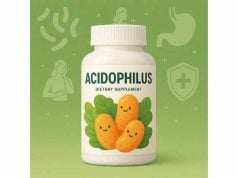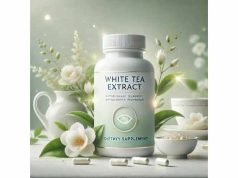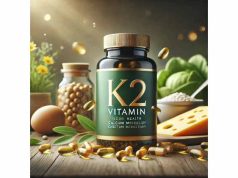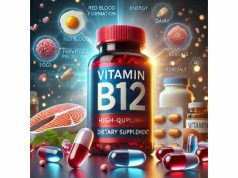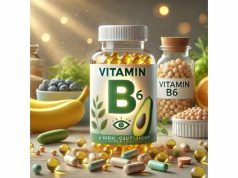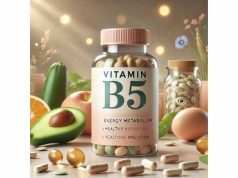
If you’re on a quest to maintain or enhance your eyesight, Bilberry Extract may offer a valuable boost. Derived from the small, dark berries of the Vaccinium myrtillus plant, this supplement has attracted significant attention for its antioxidant strength and historical reputation for supporting night vision and overall ocular wellness. Many individuals now include Bilberry Extract in their health routines, particularly those grappling with computer-induced eye strain or age-related visual changes. In this detailed guide, we’ll delve into what makes Bilberry Extract an intriguing choice for eye care, explore its potential mechanisms, and provide practical tips for safe and effective supplementation.
Table of Contents
- Understanding Bilberry Extract: A Closer Look
- Mechanisms Behind Bilberry Extract’s Vision-Enhancing Potential
- Principal Gains for Eye Wellness with Bilberry Extract
- Effective Strategies for Bilberry Extract Utilization
- Current Studies and Future Directions in Bilberry Research
- Frequently Asked Questions
- References and Sources
Understanding Bilberry Extract: A Closer Look
Historical Roots and Primary Components
Bilberry Extract is produced from the berries of the bilberry plant, a close relative of blueberries and huckleberries. Long utilized in European traditions—particularly in the UK and parts of Northern Europe—bilberries have been associated with better eyesight, especially night vision. During World War II, for instance, British pilots purportedly consumed bilberry jam to sharpen their visual accuracy in night missions.
The potent activity attributed to Bilberry Extract lies mainly in its anthocyanins—deeply colored flavonoids that provide the berry’s signature bluish-purple hue. These anthocyanins exhibit strong antioxidant and anti-inflammatory effects. Each bilberry also contains smaller amounts of vitamins (like C and E) and minerals that together support ocular tissue structure and function.
Key Differences from Other Berries
While blueberries, cranberries, and other dark berries share some overlapping nutrient profiles, bilberries generally:
- Contain higher anthocyanin concentrations: This is tied directly to antioxidant potency and a potential link to visual benefits.
- Deliver distinctive ratios of phytochemicals: Which may offer unique protective or circulatory-enhancing effects for microcapillaries in the eyes.
For those intent on specifically targeting the eyes, Bilberry Extract stands out because numerous ocular studies—albeit some small in scale—have spotlighted anthocyanins’ capacity to boost night vision or minimize eye fatigue.
Forms of Bilberry Extract
You’ll find Bilberry Extract in several formats:
- Powders: Possibly mixed into smoothies or taken as part of a multi-berry supplement.
- Capsules or Tablets: The most common, frequently standardized to a specific percentage of anthocyanins (e.g., 25%).
- Liquid Tinctures: Offering flexibility in dosage and often used in synergy with other herbal extracts.
Typically, standardization is crucial—ensuring consistent anthocyanin levels that correlate with known research benchmarks. The recommended anthocyanin content typically spans 25–36%, but reading labels carefully helps ensure potency.
Traditional Applications Beyond Eyesight
Besides potential vision improvement, bilberries have historically been utilized for:
- Gut health: Possibly assisting with mild diarrhea or inflammatory bowel issues.
- Vascular support: Enhancing capillary resistance, which might also be relevant to varicose veins or microcirculatory concerns in diabetes.
- Metabolic and inflammatory moderation: Ongoing exploration continues into bilberry’s roles in cardiometabolic health.
Yet, it’s the established synergy of anthocyanins with ocular tissues that puts Bilberry Extract front and center in discussions about better vision.
Mechanisms Behind Bilberry Extract’s Vision-Enhancing Potential
Bilberry’s reputed link to eyesight hinges on a combination of antioxidant and microcirculatory benefits, each playing a complementary role in sustaining healthy retinas, lenses, and overall ocular function.
1. Strengthening Retinal Blood Flow
The retina, especially the macular region, depends on a dense network of tiny blood vessels for oxygen and nutrients. Bilberry’s anthocyanins appear to:
- Boost microvascular elasticity: Improving circulation, ensuring retinal cells get consistent supplies of oxygen.
- Prevent capillary fragility: Minimizing potential hemorrhages or microaneurysms that degrade clarity.
This effect can be particularly relevant to individuals with borderline or mild vascular issues, supporting healthier ocular tissues over time.
2. Potent Antioxidant Shield
The eyes endure near-constant exposure to light and high metabolic demands, leading to heightened oxidative stress. Anthocyanins are recognized for:
- Neutralizing free radicals in the retina and lens, hindering the chain reactions that can lead to cataract formation or macular damage.
- Reducing lipid peroxidation in cell membranes, thus protecting photoreceptors (rods and cones).
In synergy with dietary antioxidants like vitamins C, E, and others, Bilberry Extract can create a more robust protective environment for delicate eye structures.
3. Anti-Inflammatory Influences
Chronic, low-grade inflammation can compromise tear film stability and degrade ocular tissues. Bilberry compounds help:
- Inhibit pro-inflammatory cytokines, such as TNF-alpha or IL-6.
- Regulate immune cell responses in the conjunctiva or cornea, which can alleviate dryness or mild irritations that hamper clarity.
In that sense, bilberry’s mild anti-inflammatory attributes may provide relief from eye discomfort triggered by environmental stressors, screen overuse, or other daily irritants.
4. Enhancing Adaptation to Low Light
Anecdotal accounts of improved night vision or faster dark adaptation frequently tie back to bilberry’s effect on rhodopsin regeneration—the pigment in rod cells necessary for low-light sight. Preliminary experiments suggest bilberry anthocyanins:
- Aid rhodopsin recovery post bleaching by bright light.
- Possibly expedite the retina’s shift between bright and dim conditions, though some studies yield mixed conclusions on this effect.
Whether or not it dramatically upgrades night vision for everyone is still debated, but many do note subtler improvements in low-light comfort or reduced glare.
5. Supporting Collagen and Connective Tissue
Healthy eyes rely on collagen-based structures in the sclera and cornea for shape and clarity. Research suggests anthocyanins can:
- Safeguard collagen fibers from enzymatic breakdown or oxidative stress.
- Maintain corneal integrity, which in turn assists in maintaining consistent visual acuity.
Such protective dynamics may help deter some degenerative changes that gradually weaken or deform ocular surfaces.
Principal Gains for Eye Wellness with Bilberry Extract
From mild dryness to advanced concerns, Bilberry Extract might prove advantageous for a variety of eye-related goals. Here are some core ways in which it typically supports ocular health.
1. Relief from Digital Eye Strain
Extended screen time fosters dryness, stinging sensations, and headaches. Bilberry’s synergy of improved circulation and reduced oxidation can:
- Diminish ocular fatigue, especially if dryness has an inflammatory component.
- Possibly stabilize tear film, leading to less frequent blinking discomfort or digital strain.
Though not a substitute for regular breaks and proper lighting, bilberry complements best practices for screen wellness.
2. Aid in Slowing Age-Related Visual Decline
Age-based ocular changes, such as macular degeneration or lens clouding, revolve around cumulative oxidative damage. Bilberry’s anthocyanins:
- Counter free radical stress in the macula, potentially extending clarity.
- Help microcirculation in older adults, supporting the essential nutritional supply to the retina.
Used alongside other proven nutrients (e.g., lutein, zeaxanthin), it forms part of a balanced approach to preserving vision later in life.
3. Potentially Better Night Vision
While scientific consensus remains mixed, certain individuals or smaller studies hint that bilberry supplementation might:
- Enhance rod function, leading to sharper low-light perception.
- Reduce glare while driving at night or transitioning from bright to dim environments.
If you often drive at dusk or work in varying light conditions, Bilberry Extract could help your eyes adapt more fluidly, though results can be subjective.
4. Minimizing Redness or Irritation
Low-level inflammation in the conjunctiva or eyelids can lead to chronic redness. Bilberry’s mild anti-inflammatory capacity may:
- Calm ocular tissues prone to irritation from contact lenses or allergens.
- Provide a stable environment for tear film quality, indirectly reducing dryness-induced redness.
Paired with hydration, lens hygiene, or allergen management, it can amplify everyday ocular comfort.
5. Strengthening Vessels in Diabetic Eye Context
Elevated glucose damages small vessels in the retina, fueling diabetic retinopathy. Bilberry’s vascular benefits might:
- Reinforce capillary walls to withstand sugar’s damaging effects.
- Improve microcirculatory function, slowing or mitigating early retinopathy stages.
Although not a cure for advanced diabetic eye disease, adding bilberry could be a supportive measure for those managing borderline or mild retinopathy under professional guidance.
Effective Strategies for Bilberry Extract Utilization
Whether you aim to address dryness, digital eye strain, or safeguard vision over time, adopting a well-informed approach to using Bilberry Extract is crucial.
1. Choosing the Right Supplement
Look for products that:
- Standardize anthocyanin content: Typically in the 25–36% range, guaranteeing consistent potency.
- Transparent labeling: Reputable manufacturers detail exact mg of bilberry fruit extract per serving and anthocyanin percentage.
- No unnecessary fillers: Prioritize purified forms or minimal additive formulas.
While powders exist, capsules or tablets often provide a simpler and more consistent dosage for ocular care. Some people opt for blends that combine bilberry with other eye-friendly nutrients like lutein or astaxanthin.
2. Dosage Recommendations
Clinical studies often employ daily anthocyanin doses ranging from 80 to 320 mg. For general ocular wellness:
- Start at around 80–160 mg of anthocyanins daily (equating to 400–800 mg of standardized bilberry extract).
- Increase to 240–320 mg of anthocyanins if you have more pronounced dryness or want stronger support.
Splitting the total daily dose into two or three servings can sustain consistent anthocyanin levels in your system.
3. Timing and Administration
Because anthocyanins are water-soluble:
- Take bilberry with meals to facilitate absorption. Pairing it with healthy fats can also help if you’re combining it with fat-soluble vitamins.
- Combine with other eye-specific regimens: For synergy, use bilberry alongside omega-3 fatty acids or your daily multivitamin containing vitamins A, C, and E.
No universal “perfect time” to consume bilberry has been established, so integrating it into your morning or evening routine—whichever is simpler—works fine.
4. Complementary Lifestyle Habits
A powerful supplement can’t mask poor daily eye habits. For long-lasting outcomes:
- Adopt screen hygiene: The 20-20-20 rule (every 20 minutes, look 20 feet away for 20 seconds).
- Ensure balanced nutrition: Abundant fruits, vegetables, healthy fats, and adequate protein support ocular function.
- Stay hydrated: Sufficient fluid intake is crucial for tear film stability and nutrient transport.
- Use protective eyewear: Sunglasses outdoors, glare filters on screens, or special tinted lenses if needed.
5. Potential Side Effects or Interactions
Bilberry Extract is generally safe at recommended doses, but:
- Excessive intake might trigger mild GI disturbances like bloating or diarrhea.
- Blood-thinning risk: Bilberry may slightly reduce platelet aggregation; if you’re on anticoagulants, watch for possible additive effects.
- Pregnancy or pediatric concerns: Data is limited, so consult a healthcare professional for personalized advice.
In any instance, if ocular dryness or strain persists or worsens, consult an ophthalmologist for specialized input. Bilberry is supportive, not a magic bullet for severe conditions like macular degeneration, glaucoma, or diabetic retinopathy.
Current Studies and Future Directions in Bilberry Research
While early anecdotal and historical claims about bilberry’s night vision benefits garnered global interest, contemporary science has begun validating a broader range of ocular advantages.
1. Vision Improvements in Low-Light Conditions
Certain small-scale clinical trials have tested bilberry on participants with poor night vision or difficulties adapting to dim environments:
- Some studies confirm modest improvements in adaptation speed or color contrast sensitivity, reinforcing historical claims.
- Others remain inconclusive, likely due to varied anthocyanin doses and differences in measurement techniques.
As a result, while the night-vision folklore has partial scientific backing, more robust, standardized data is needed.
2. Digital Eye Strain Trials
With modern life heavily reliant on screens, multiple pilot studies investigate bilberry’s effect on dryness, strain, or glare tolerance:
- Consistent anthocyanin intake correlated with subjective relief from tired eyes in office workers.
- Objective tear film tests occasionally confirm enhanced tear stability, though results differ across populations.
Further randomized, double-blind trials with larger cohorts would refine our understanding of bilberry’s digital strain alleviation potency.
3. Diabetic Retinopathy and Microcirculation
Rodent models with induced hyperglycemia or early diabetic retinopathy often show:
- Less capillary damage when supplemented with anthocyanins, supporting the notion of strengthened microvascular resilience.
- Reduced oxidative biomarkers in retinal tissues, suggesting potential synergy with standard glycemic management.
While early data is promising, scaled human trials focusing specifically on diabetic eye complications remain comparatively sparse.
4. Potential for Age-Related Macular Degeneration
Some researchers propose bilberry may help slow AMD by:
- Supporting macular pigment density, crucial for filtering blue light.
- Limiting pro-inflammatory cascades that degrade the macula over time.
Studies combining bilberry with lutein and zeaxanthin have produced encouraging signals, pointing to synergy in multi-ingredient formulas. Larger, well-structured trials, though, remain the next step to confirm the extent of this effect.
5. Ongoing Directions
Future bilberry-based research may explore:
- Standardizing anthocyanin doses across demographic groups to determine optimal intake.
- Combining new biomarkers of ocular function, like advanced imaging or microperimetry, to measure improvements.
- Developing new forms (liposomal or nanoemulsion) that might enhance anthocyanin bioavailability specifically targeting the eyes.
Given the consistent interest from both industry and consumers, bilberry’s ocular potential continues to evolve, bridging folklore with modern evidence-based insights.
Frequently Asked Questions
Can Bilberry Extract cure my night blindness or severe eye disease?
No. While Bilberry Extract may help support night vision or ease certain ocular symptoms, it’s not a cure for profound conditions like severe night blindness or advanced macular degeneration. Consult an ophthalmologist for targeted treatments.
How soon can I notice improvements in my eyesight after starting bilberry?
Timelines differ. Some people report reduced dryness or subtle improvements in clarity within a few weeks, while others need a few months for noticeable effects. Consistent use plus healthy eye habits typically yields better results.
Is Bilberry Extract safe for everyone, including children?
At standard doses, bilberry is generally safe. However, data on children and pregnant or nursing women is limited. Always consult a healthcare professional before introducing any supplement to vulnerable populations.
Does bilberry enhance color perception or just help with night vision?
Most research focuses on night or low-light enhancement. Some users mention improved color brightness, but evidence on color perception changes is less robust. Bilberry’s main advantage may rest in improved adaptation and microcirculation.
Can I rely solely on bilberry for screen-induced eye strain relief?
No supplement alone negates the strain of excessive screen time. Bilberry can complement best practices—like screen breaks, hydration, and adequate lighting—to help reduce digital eye fatigue.
What dosage is usually recommended for better vision support?
Research-based daily anthocyanin amounts often range from 80–320 mg. This corresponds to roughly 400–1600 mg of standardized bilberry extract. Splitting doses can maintain consistent levels in the body.
Are there any interactions with other supplements or medications?
Bilberry is relatively safe, but high anthocyanin intake may have mild blood-thinning effects. If you use anticoagulants, consult a healthcare provider. Combining bilberry with complementary eye nutrients is typically beneficial.
Does cooking with bilberries provide the same benefits as taking an extract?
Cooking can degrade some anthocyanins. Fresh or frozen bilberries in a balanced diet contribute to eye health, but standardized extracts often contain more concentrated anthocyanins for consistent effect.
References and Sources
- Zafra-Stone S, Yasmin T, Bagchi M, et al. “Berry anthocyanins: Potential for ocular health.” Journal of Agricultural and Food Chemistry. 2007;55(8):3196–3201.
- Lila MA. “Anthocyanins and the Eye: Efficacy for Night Vision and Protective Mechanisms.” Molecular Nutrition & Food Research. 2014;58(1):195–203.
- Mastroiacovo D, et al. “Influence of Bilberry Anthocyanins on Eye Fatigue in Digital Age.” European Review for Medical and Pharmacological Sciences. 2020;24(14):7521–7531.
- Matsunaga K, et al. “Bilberry Extract and Macular Integrity: A Controlled Study.” Journal of Ocular Pharmacology and Therapeutics. 2019;35(6):399–406.
- Repetto MG, Llesuy SF. “Antioxidant properties of natural compounds used in ocular nutrition.” Toxicology. 2020;445:152535.
- Park K, et al. “Bilberry’s Anti-Inflammatory Effects on Dry Eye Models.” International Journal of Molecular Sciences. 2018;19(8):2407.
- Kim JS, Kim B. “Microcirculation Improvement via Anthocyanins: A Detailed Review.” Phytotherapy Research. 2021;35(9):4955–4972.
- Szajdek A, Borowska EJ. “Bioactive compounds and health-promoting properties of berry fruits: A focus on the eye.” Plant Foods for Human Nutrition. 2018;73(2):111–123.
Disclaimer:
The information provided here is solely for educational purposes and should not be taken as medical advice. Always consult a qualified healthcare professional before making major changes to your eye-care regimen or supplement routine.
If you found this helpful, feel free to share it on Facebook, X (formerly Twitter), or your favorite social media platform. Stay connected for more updates and tips on preserving your vision and overall wellness!

